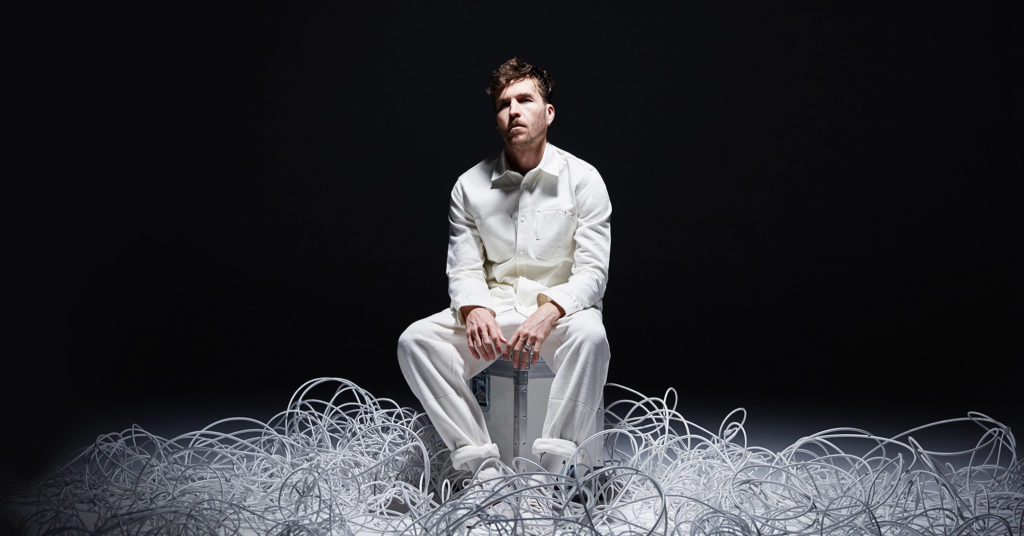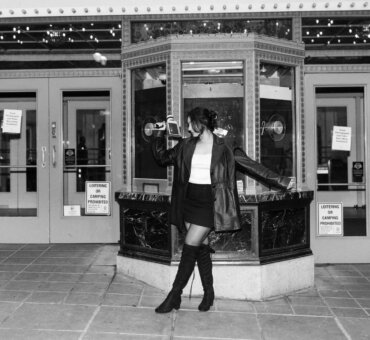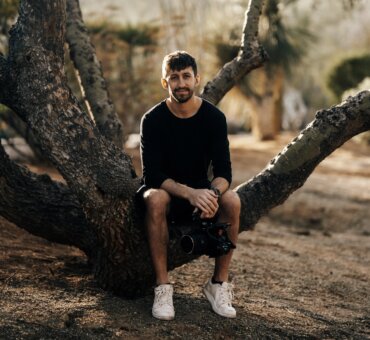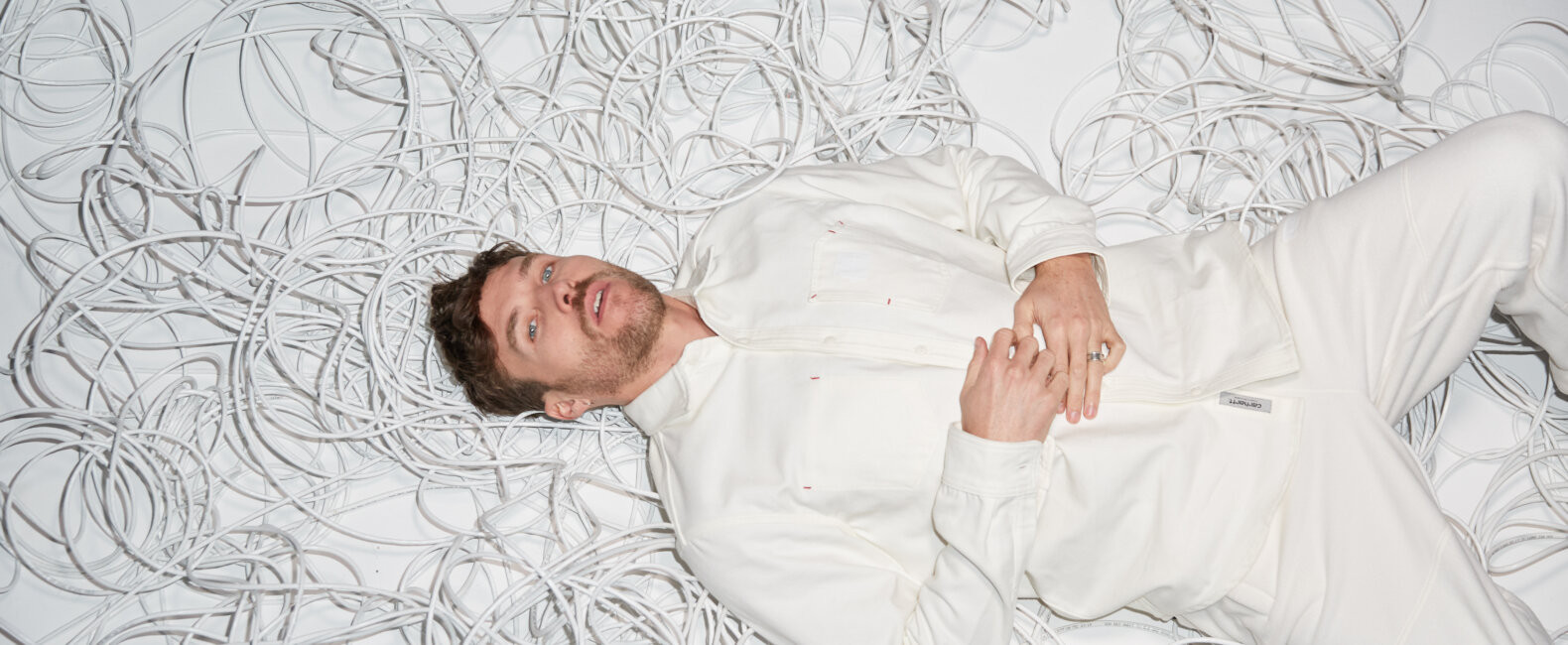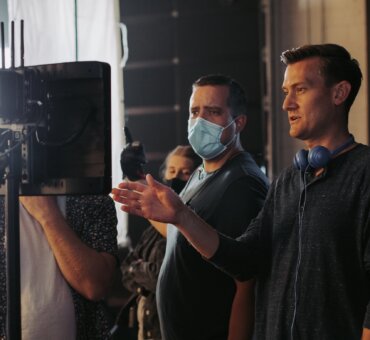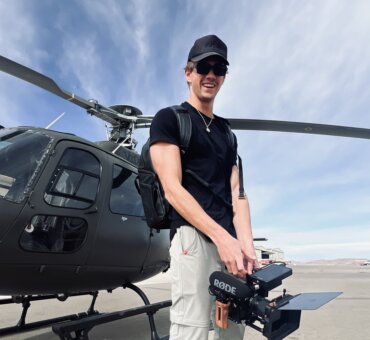The word ‘process’ can be misleading for our own creative processes. It implies that it plays out the same way every time, that we have a formula for working our ideas out. Well, if you’re reading this, then you know that couldn’t be further from the truth. You know creative breakthrough can be hard to come by, and Director Salomon Ligthelm knows it, too.
“I don’t even know how to describe it. It’s the most stressful, naked place that you can be because we deal in currency,” he told us. “When you’re creative, you deal in a currency of ideas. And when you cannot come up with ideas, you have no currency. You feel like you don’t have value.”
Not having an idea is a dark place to be for any creative. It can make us feel like our processes are broken—or worse, were never effective in the first place.
So, maybe instead of creative processes, we should think of them as creative practices. Throughout his career, Salomon’s learned that there isn’t a set of steps to creative breakthrough. But, there are techniques. And he was happy to share his with us in our latest film, which you can watch here:
But, we wanted to take this idea a bit further, so we talked with Salomon about his creative processes, and how he creates ideas through them. We’ve all faced creative block before, and he has some great thoughts on how he turns it into breakthrough.
Here’s award-winning Director Salomon Ligthelm.
What’s going through your head when you don’t have ideas?
Salomon Ligthelm: It’s writer’s block. It’s the equivalent of writer’s block, I guess. My wife’s probably most frustrated with me when I’ve got creative block because you kind of internalize the fact that you don’t have ideas, or ideas aren’t coming.
When you’re working on someone’s music video or commercial, the process of waiting for that idea is so stressful. I don’t even know how to describe it. It’s the most stressful, naked place that you can be because we deal in currency. When you’re creative, you deal in a currency of ideas. And when you cannot come up with ideas, you have no currency. You feel like you don’t have value. That’s just the reality of it. I think I have a value system outside of that, thankfully, but that’s the way the world works.
What do you feel in your heart?
Worthless.
Do you have a certain process for creative breakthrough?
Creativity is a very ephemeral thing to talk about, so it’s hard to qualify it. For everyone there’s a kind of a different way to have creative breakthroughs. For me personally, I’ve realized that having a sense of momentum, creative momentum, is really important. It feels like it’s a bit of a catch-22—how do you get momentum without having the breakthrough?
I’m not trying to create something or come up with something that’s really complex. I own a couple of cameras and I go out and shoot something that’s super simple. I did this film last year, that was just of a guy playing basketball in the beginning of winter. He wasn’t even actually playing basketball. He was walking up to a basketball court and shooting.
It was something I’d never done. I shot it in a one-take and the process of doing that got my mental gears turning again.
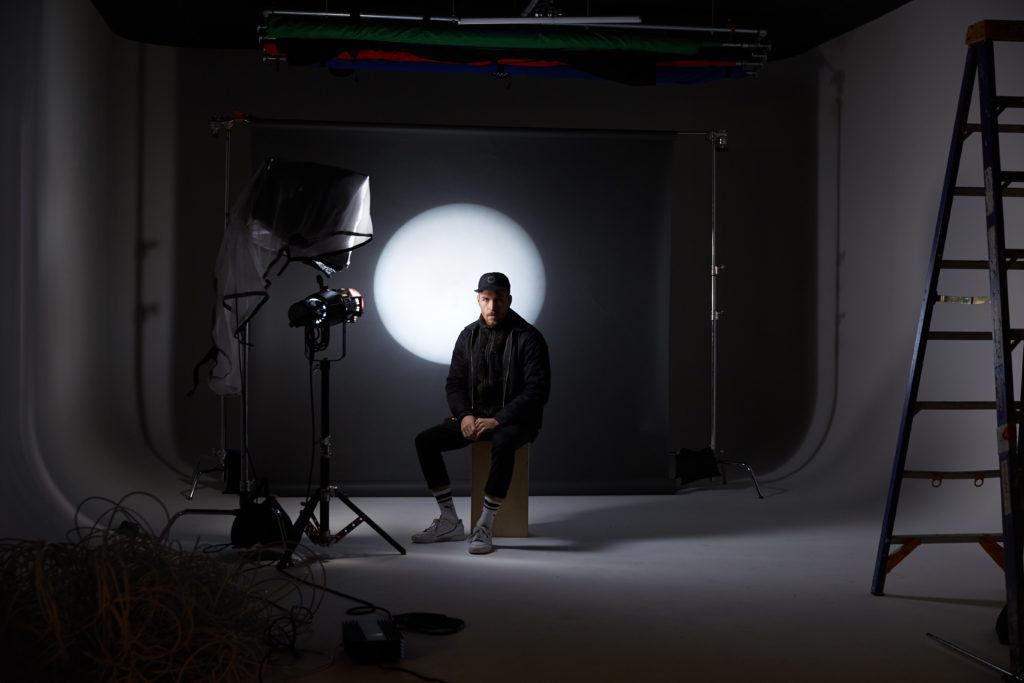
Was physical movement part of that? Or being outside?
Yeah. I think often creativity comes to life when you put yourself in the real world. I find this all the time in my career. My working process is that I spend three months not working, and then all of a sudden I’ll have a job. I’ll pitch, pitch, pitch, pitch, pitch and all of a sudden I’ll have a job.
While I’m on that job, in a different location in the world, I’ll see something traveling from one location to another location and I’ll be super inspired. It just happened to me in Serbia. I was shooting a job for Lexus and seeing some of the people in Serbia sparked this other idea that I had in my back pocket. And I just said to my producer, “Can we try and pull off this music video on the back end of this commercial?” Then, after that I did four more projects.
It’s weird. When I’m home and I’m pitching, I never win pitches. It’s so hard to win. But if I’m on a job, I’ll win pitches and I’ll have ideas for new projects and all of a sudden I find myself working nonstop for three months back-to-back on six projects. Then I need to come home and I’ll edit. I’ll need to edit everything and then after I’m done, I’ll sit in my office and I’m like, I’ve got no ideas. I need to go out and I need to work again. That’s my life.
I think often creativity comes to life when you put yourself in the real world.
How do you know when you have a good idea?
For me, it’s not really a eureka moment, that light bulb moment. I don’t feel like I ever have that idea where it’s like boom, it came, and now it’s all just going to fall perfectly in place. For me, an idea that’s worth chasing is the idea that I can’t stop thinking about.
For some ideas, it takes work. I’ll think, How do I stretch that idea out for three and a half minutes or five minutes? How do I do that? When I have to think about it in that way, it’s probably not a good idea.
But, if I have an idea that I could write in a sentence, I know I have a solid idea. My mind can start to build the world and build the narrative and create ideas on top of it.
It’s almost like the idea creates its own momentum.
Right, right. Look at the way films get made. Let’s say indie films. Good indie films get made because people get excited about an idea, people get excited about what’s on the page and they start to attach themselves to it. Ideas are self-generating in a way. They build upon themselves. What I try and do is get something down on one line, a log line that feels very clear—and also feels like it can build upon itself.
How does inspiration play into your process?
When I started, I was on the internet a lot. Just searching for ideas. But, now I’m so fatigued by Instagram and everything that’s on there. You scroll through everyone’s posts and everything looks the same. It almost feels like Instagram is representative of one person, not the millions of people who are on it. And I can’t compete with this person. They put something out yesterday. They’ll put something up today.
I’m trying to just get myself off that crazy rollercoaster. I’ve been reading a lot more. I’ve been trying to look at all the films I’ve been studying. That’s not necessarily something I’m doing straight after a pitch comes in. But, in my subconscious I’m storing and trying to educate myself on older films, and things from the real world.
And, going back to momentum, sometimes I’ll sit for hours and try to come up with something. But if nothing comes, I’ll go for a walk or a run or a bike ride. Anything just to kind of shake up the status quo of what I’m doing. During those times, I feel like something drops. The mind is allowed to wander and allowed to start piecing things together without ingesting. I have to allow my mind some space to do some of the creative circuitry by itself. In its own time.
To follow the conversation about creative breakthrough, hear from other filmmakers in the community, and get involved in the conversation, head over to our Instagram or use the hashtag #WhenImStuck.
To learn more about Musicbed and get access to a curated roster of musicians and composers for your films go to Musicbed.com/breakthrough
